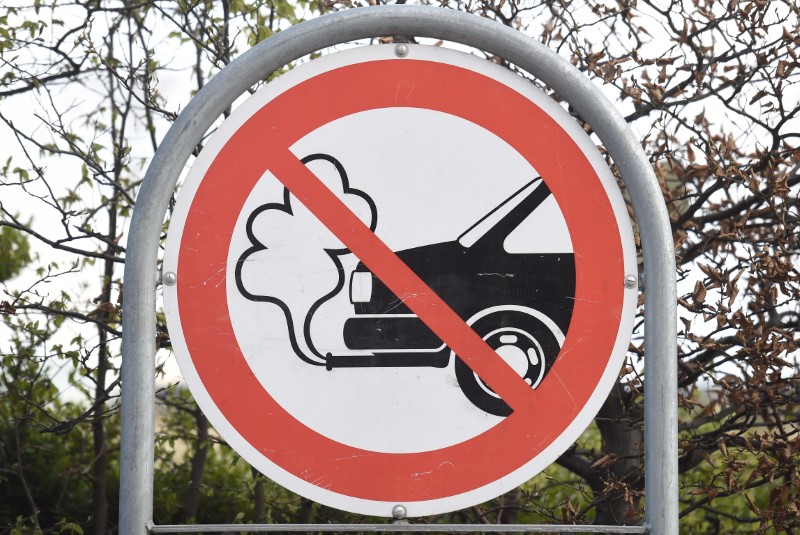FRANKFURT/BRUSSELS (Reuters) - European carmakers have offered a further 20 percent cut in average carbon dioxide emissions for their vehicles in the next round of EU goals currently being drawn up, but said full compliance should wait until 2030 and remains conditional on consumer uptake of electrified cars.
The industry needs a "clear and foreseeable time frame" for emission goals beyond 2021, when a new limit of 95 grammes of CO2 per kilometre is due to enter force, said Daimler (DE:DAIGn) boss Dieter Zetsche, who currently chairs ACEA, the main European carmakers' association.
Europe's powerful car industry has come under fire since Volkswagen (DE:VOWG_p) admitted to cheating on emission tests in the United States, with the head of the European Commission voicing "shock" at its behaviour in a speech on Wednesday.
The scandal has prompted the European Commission to seek tougher controls over the industry's emissions.
It is expected this year to present a proposal for new CO2 standards for cars and vans for beyond 2020 to help achieve the bloc's overall goal of cutting greenhouse gas emissions by at least 40 percent below 1990 levels by 2030.
The further 20 percent cut proposed by ACEA would reduce average CO2 emission goals to 76 grammes per kilometre.
Full implementation of these goals, however, should depend on consumer uptake of new models of electric and rechargeable hybrids, Zetsche told reporters at the Frankfurt auto show.
During a mid-term review in 2025 the 20 percent reduction goal could either be raised or lowered depending not only on the uptake of electric cars but also on the availability of battery re-charging infrastructure, he added.
"This conditionality principle links Europe's long-term climate objectives to the reality of the market," he said.
According to ACEA data, chargeable electric vehicles made up 1.2 percent of new car sales in the first half of this year.
A Commission spokeswoman said it was currently assessing the best options for developing "ambitious and realistic targets" - a debate the EU's senior climate official called "very heated."
Jos Delbeke, director general of climate action, told a conference last week that regulators were considering policies to incentivise low-carbon vehicle uptake and infrastructure development - without setting targets.
"We want to have ambitious targets but we also want targets that the transport sector can deliver on," he said.
But environmental campaigners said the industry was still doing too little itself to promote electric vehicle uptake.
"More than 98 percent of marketing spend is on conventional cars," said Greg Archer, clean vehicles director at Transport and Environment. "The industry needs to stop blaming others ... and start selling an electric dream to inspire their customers."
As long as the market share of electric cars remains small, Zetsche said the latest generation of diesel vehicles should remain on the road because they emit 15-20 percent less CO2 than equivalent petrol vehicles.
"Any rash move away from this technology will make it more difficult for our industry to meet the European Commission targets," he said.
The ACEA called for an EU-wide approach to air quality to stop cities or countries opting for individual bans to tackle pollution, with Britain and France planning to ban the sale of new petrol and diesel cars from 2040.

"We seem to go back to the Middle Ages where the cities were defining how things needed to be done, undermining the single or internal market," ACEA Secretary General Erik Jonnaert said.